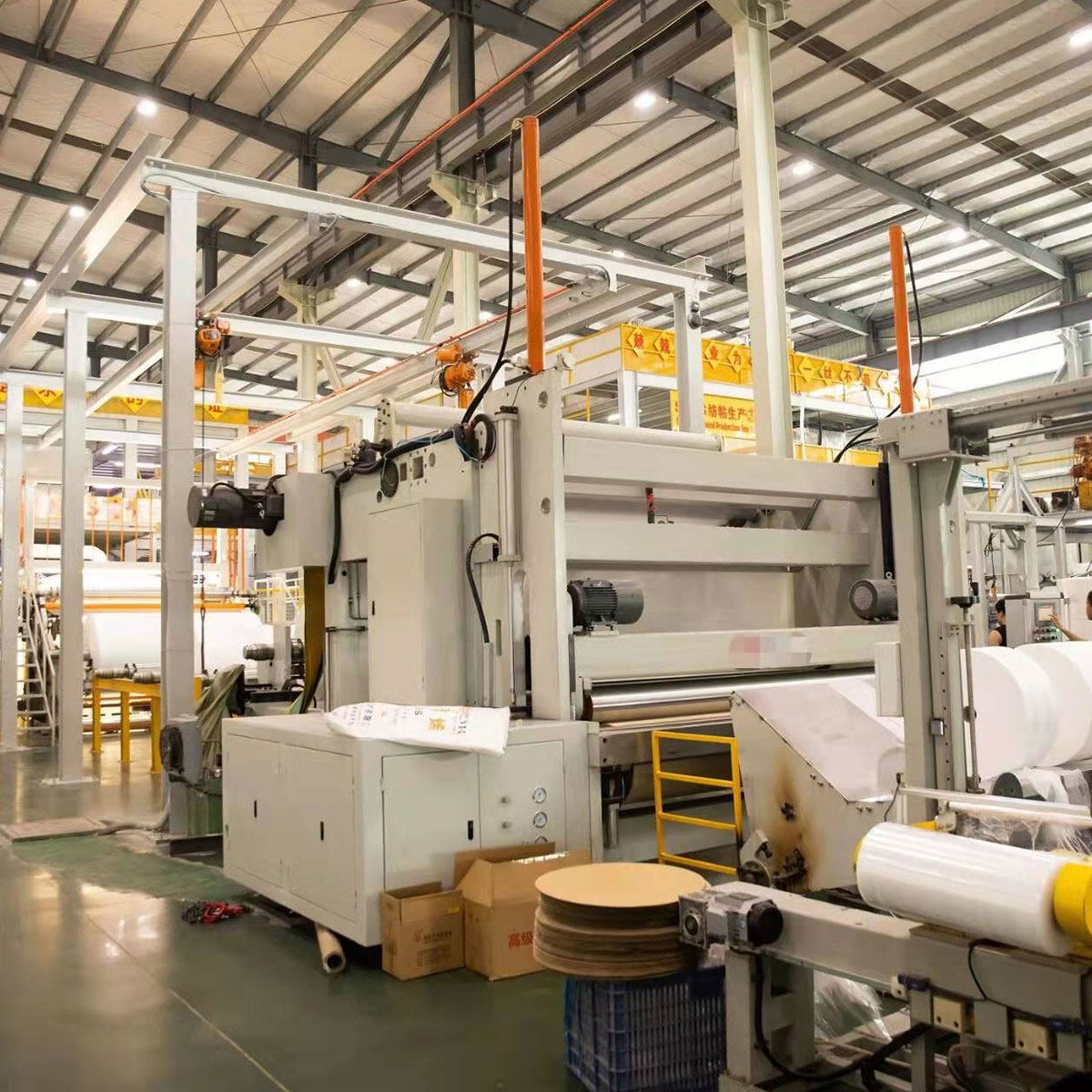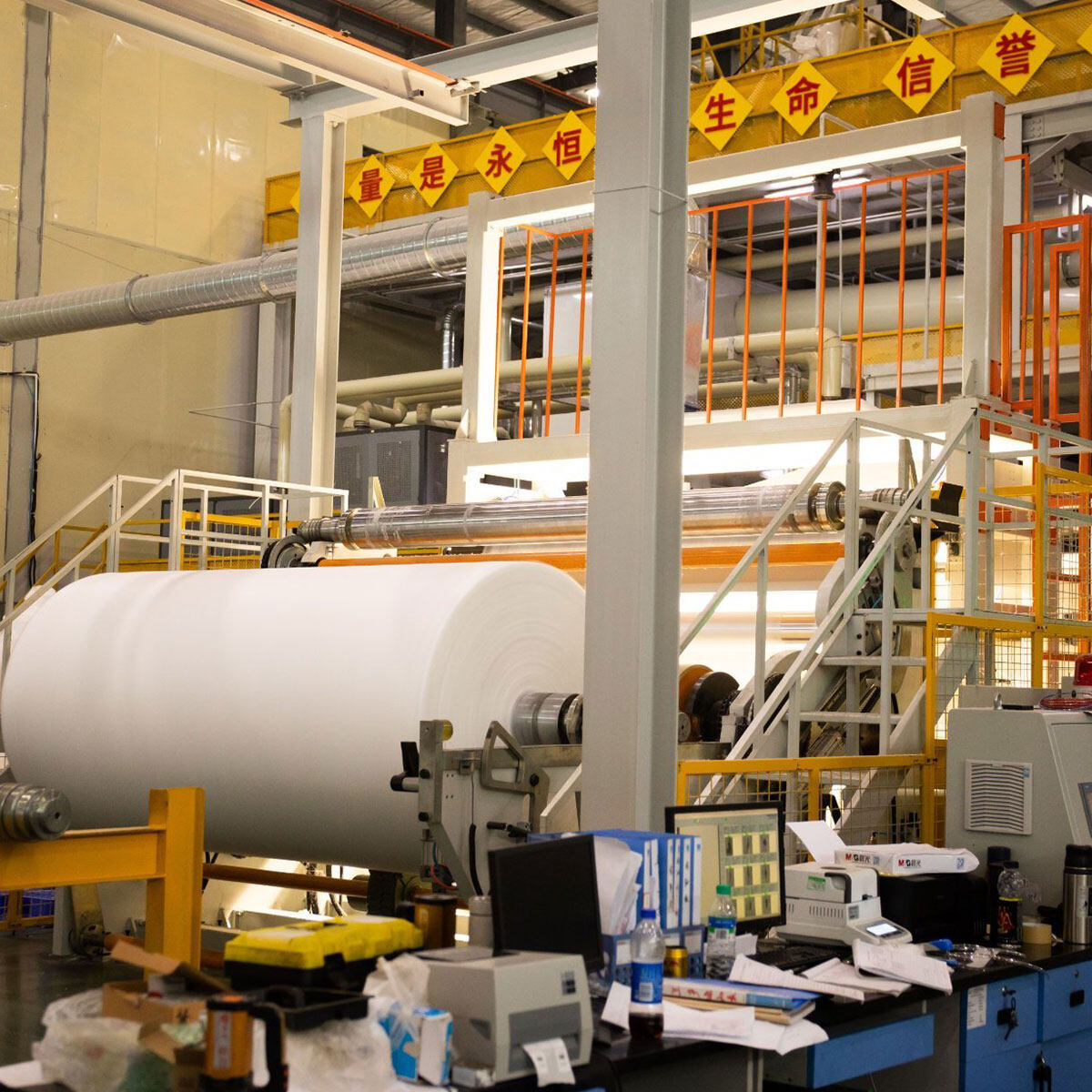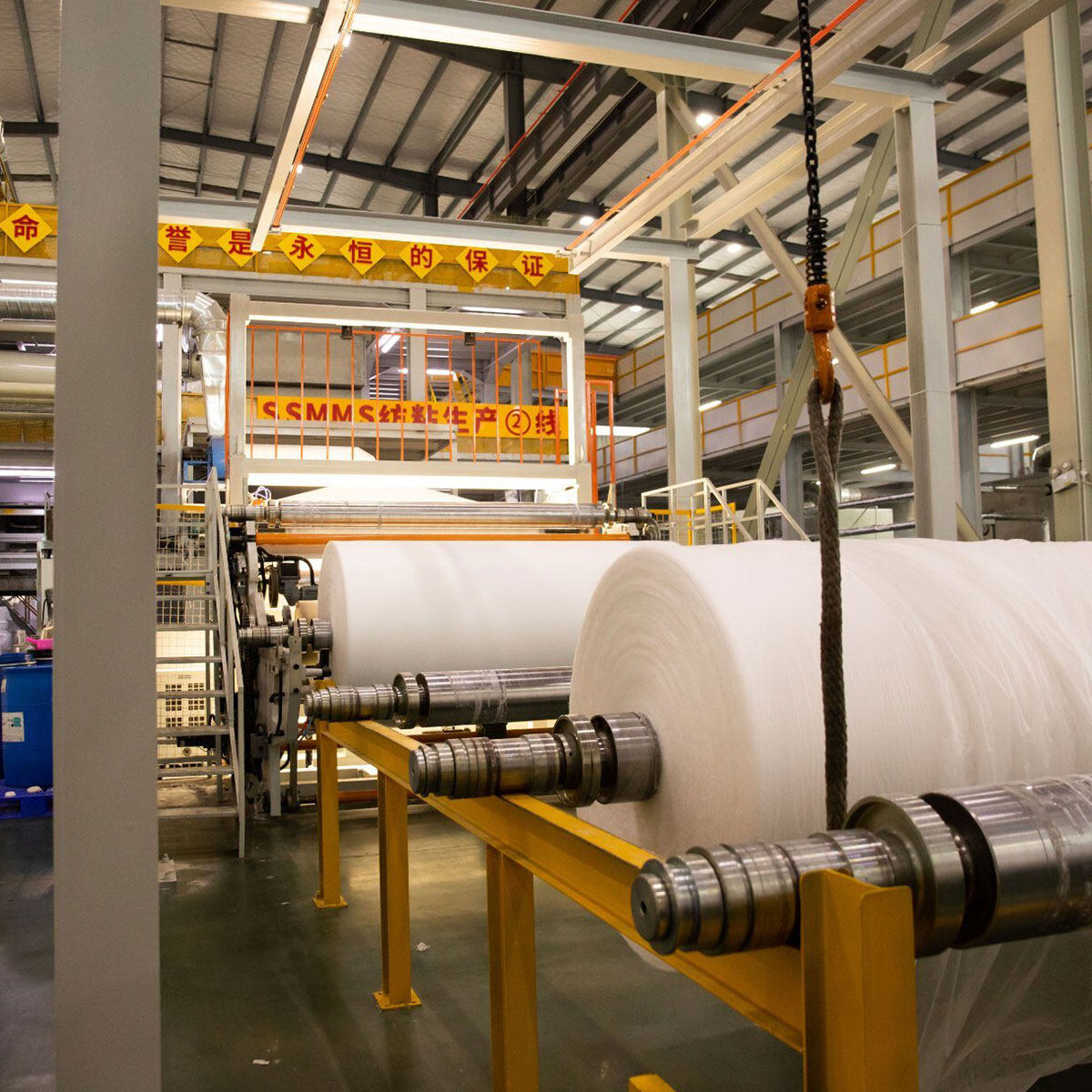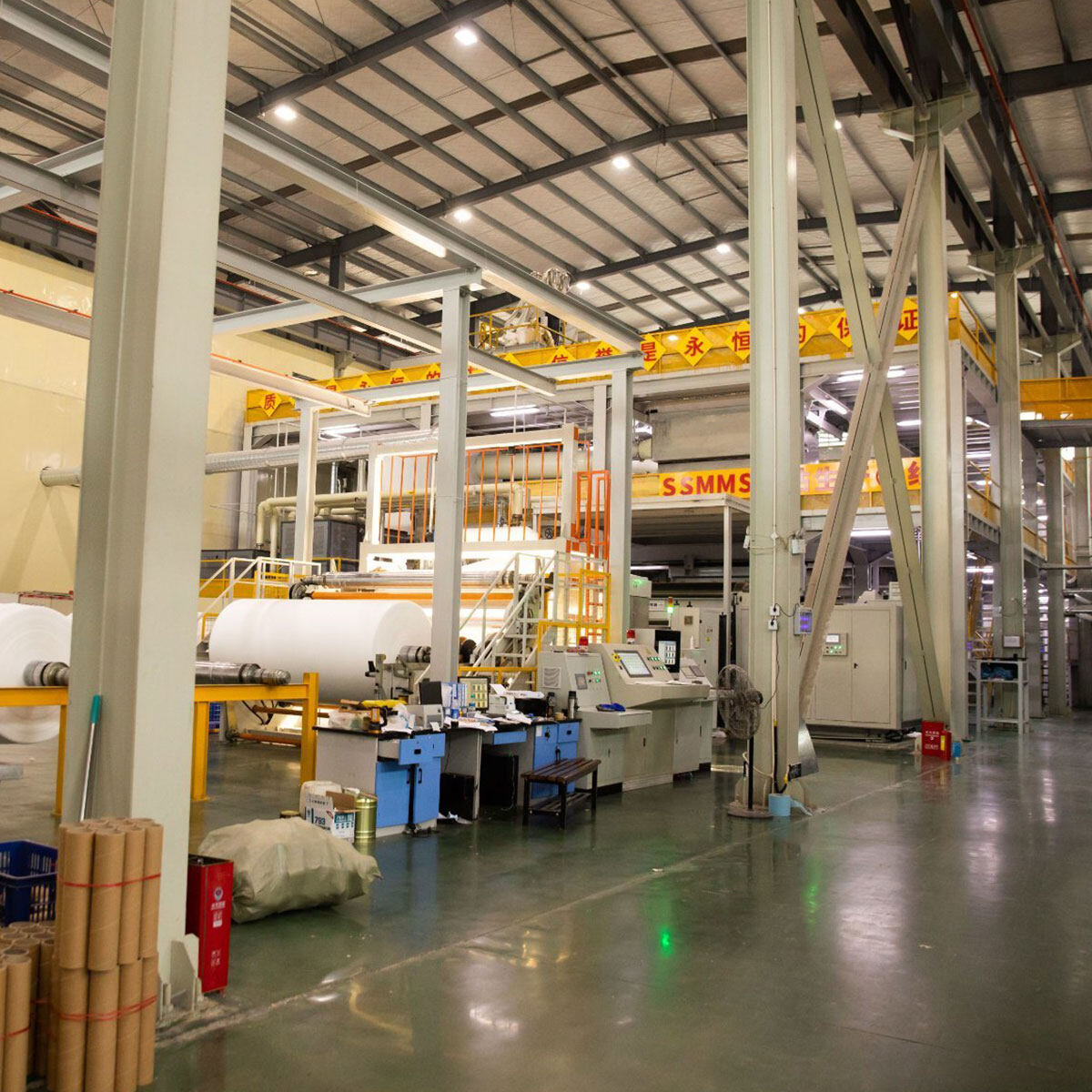6-20 个字符(仅限字母加数字)
密码不一致

SSMMS Model
SSMMS Model
(7)Five beam pp spunbond nonwoven machine
Today, the procedure begins with the melting and extruding of thermoplastic chips. Polypropylene has been the most popular polymer for melt-blown technology up to this point. The filament is then produced by continuously filtering and measuring the extrusion. High-velocity air is used to stretch the filaments to smaller diameters, guarantee thickening occurs, and improve random filament laying. Multi-denier spinning enables the merging of spun-bonded and melt-blown materials into one nonwoven web, whereas SMS can be made offline by laminating layers of spun-bond and melt-blown webs. The web is then pre-bonded and thermally bonded as it travels through the rollers.
SSMMS nonwoven fabric machine
The professional non-woven fabric machine's structure has been improved; first and foremost, it is now more compact. To achieve unified coordination, the nonwoven fabric equipment can incorporate all the instruments used in the nonwoven fabric production process within the equipment. As a result, professional non-woven equipment is frequently compact.
1600mm SSMMS non-woven fabric machine
Important parts of the machine include the drum section and the opening roller, which are made of a simplified body, corner nails, flanges, hollow shafts, etc. The spiral-shaped installation of corner nails on the cylinder. The beater's tangential direction is where the raw materials fed from the cotton input enter.
SSMMS nonwoven machine production line
The non-woven material is constructed of polyester fibers, which can be knitted into varied thicknesses, textures, and hardnesses. The production of non-woven fabrics has transitioned from manual to mechanical as a result of advances in science and technology. Its appearance has resolved complex issues including processing efficiency that is too slow.
2400mm SSMMS type nonwoven equipment
Its distinctive qualities are reflected in spunbond nonwovens technology. It transcends the distinctions between cloth, film, and paper and has the ability to directly affect the fields of use for all three types of goods. The non-woven fabric machinery uses polypropylene fibre chips as its primary raw material, and it includes a chip conveying device, a melt extrusion spinning system that includes a single screw extruder, a melt pump, a melt filter, a spinning box, a spinneret, and a melt pipe, as well as a cooling and drafting system that includes a side blowing device, a drafting device, a diffusion duct, a vacuum suction device,
SSMMS spunbond nonwoven fabric making machine
The major purposes of a nonwoven fabric manufacturing machine are its small structure and overall modular design. It is a common method for creating goods made of non-woven fabric. The machine's shield configuration for manufacturing nonwoven fabrics ensures worker safety during operation and gives workers access to improved and safer production tools.
SSMMS model 3200mm nonwoven fabric device
Non-woven fabric and spunbond non-woven fabric are inferior. The fabric has the qualities of being wear-resistant, firm, and having a wonderful hand feel since it is made with modern polyester and polypropylene fibers. It is frequently used in the manufacturing of medical and health care, home décor, packaging, clothes, industry, and agriculture. The best non-woven fabric to use for creating non-woven items is spunbond.





